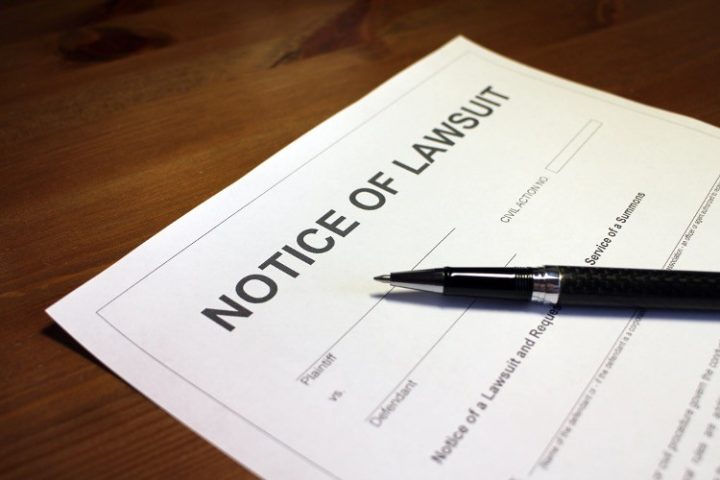
Officials of Grand Canyon University (GCU) saw what was coming and declared in advance that the fine announced last week by the Department of Education (DOE) was unjustified. It was targeting GCU for its previous lawsuit against the DOE over its unwillingness to grant non-profit status to the university.
After months of attempting to deal with officials from the office of Federal Student Aid (FSA), the part of the DOE that doles out and monitors federal monies to students, GCU decided to go public with its complaint.
GCU was first established as a non-profit in 1949 by the Arizona Southern Baptist Convention (ASBC) but, after ending its affiliation with the ASBC, it requested and obtained for-profit status in 2004.
As the school exploded in growth from 1,000 students in 2008 to more than 118,000 currently, it began to chafe under the burden of real-estate taxes ($9.2 million a year) levied on its sprawling 100-acre campus in the Phoenix suburbs. It also learned just what it meant to be the recipient of federal tax monies — i.e., student aid — requiring the expenditure of millions of dollars and thousands of man hours to keep up with the increase in federal regulations that always go along with “free” money.
Non-profits suffer under much less egregious and costly regulations. And every agency involved granted GCU permission: the Internal Revenue Service (IRS), the Higher Learning Commission (HLC), the State of Arizona, the Arizona Private Postsecondary Board, and the NCAA. Every agency, that its, except the Department of Education.
Its Federal Student Aid (FSA) office, it should be noted, is headed by the notorious Richard Cordray, who led the infamous and unconstitutional Consumer Financial Protection Bureau (CFPB) from its inception in 2012 until 2017.
Now, Cordray is free to inflict his own brand of “justice” on whomever he chooses. And, on October 31 he announced his target: Grand Canyon University.
After years of “investigation,” the FSA concluded that “GCU lied to more than 7,500 former and current students about the cost of its doctoral programs over several years.” It concluded that doctoral students paid more than what GCU estimated it would cost them for those degrees.
According to Cordray, “GCU lied about the cost of its doctoral programs to attract to students to enroll.”
He patted himself on the back for the great sleuthing that brought the miscreant to justice:
FSA takes its oversight responsibilities seriously. GCU’s lies harmed students, broke their trust, and led to unexpectedly high levels of student debt.
Today, we are holding GCU accountable for its actions, protecting students and taxpayers, and upholding the integrity of the federal student aid programs.
In its preemptive strike against the FSA, GCU stated,
By intentionally mis-classifying GCU as a for-profit institution for purposes of federal student aid, ED [the Department of Education’s office of Federal Student Aid] is now able to target the university as part of a coordinated effort … to “pursue the full range of sanctions” against for-profit institutions that they frequently decry as bad actors due to the disproportionate number of Americans who attended those schools and then defaulted on federal student loans.
GCU does not fit this profile because 1) it is legally a nonprofit entity, and 2) its high-quality students consistently have lower loan default rates than the national average at nonprofit universities.
Yet, we believe GCU is still being targeted by these agencies in an unprecedented manner for a regionally accredited 501(c)(3) designated nonprofit university.
The agencies involved include not only the DOE/FSA, but the Federal Trade Commission (FTC) over the school’s alleged illegal marketing tactics, and the Department of Veterans Affairs over discrimination.
It all started, claims GCU, when the DOE refused to grant the school tax-exempt non-profit status, and GCU sued. Noted the university in its October 5 statement:
Since GCU filed its lawsuit, these agencies have swamped the university and its education partner with broad requests for voluminous amounts of information and records about our operations — the scope of which made it clear these requests were part of a broad fishing expedition to find issue with the university.
Nevertheless, with nothing to hide, GCU and its education partner invested thousands of staff hours and millions in legal costs to work collaboratively and comply with the requests.
After these comprehensive reviews, the only “findings” these agencies have shared with us are seemingly minor in nature, yet they attach labels such as “substantial misrepresentations” or “deceptive and misleading” in an effort to taint the university as a bad actor when all available evidence is to the contrary….
To be frank, the substance of these claims is so frivolous that they would have easily been resolved in a 10-minute phone call had the agencies chose to do so. We would have disagreed with the agencies’ conclusions but believe a reasonable accommodation could have been reached in each case in a spirit of cooperation.
Instead, the agencies have chosen to, quite literally, make a federal case out of what should be minor disagreements.
GCU is being deliberately and intentionally targeted:
The irony in these reviews, especially as it relates to ED’s accusations, is that a 2022 report by the U.S. Government Accountability Office (GAO) found that 91% of colleges in America have misleading information or understate the net price in their financial aid offers to prospective students. That includes 41% of colleges that do not even provide a net price in their offers to students.
GCU provides greater levels of transparency than is legally required and is looked at by its peers as a leader in higher education transparency – yet these government agencies have chosen to single out GCU and threaten punitive actions in order to harm the university.
GCU plans to appeal the levy of fines and sanctions from Cordray and company.



